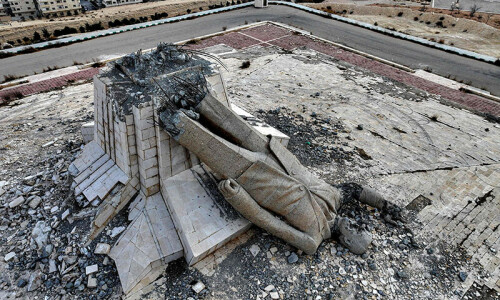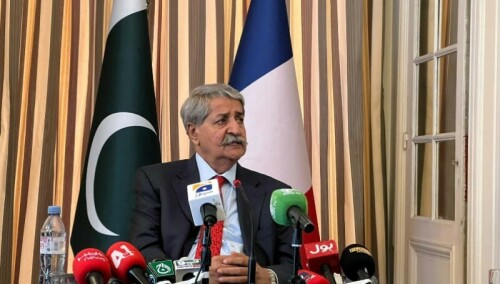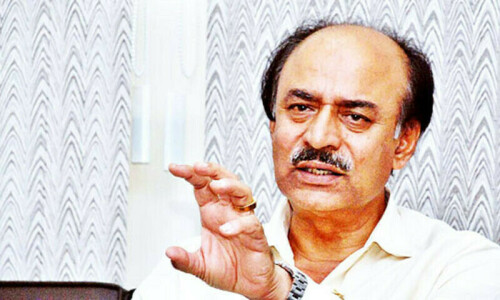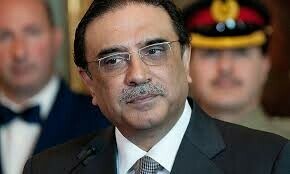MANAMA, Dec 8: US Defence Secretary Robert Gates on Saturday said Iran’s foreign policy was a threat to the United States, the Middle East and all countries within range of missiles which he said Tehran was developing.
“There can be little doubt that their destabilising foreign policies are a threat to the interests of the United States, to the interests of every country in the Middle East, and to the interests of all countries within the range of the ballistic missiles Iran is developing,” Gates told delegates at a conference on regional security in the Bahraini capital, Manama.
He claimed that Iran was also “funding and training” militias in Iraq and supporting what he called “terrorist organisations” such as Lebanon’s Hezbollah and the Palestinian Hamas.
Iran has consistently denied funding and training militias in Iraq.
Gates charged that Tehran was developing “medium-range ballistic missiles that are not particularly cost-effective unless equipped with warheads carrying weapons of mass destruction.” His accusations came five days after the publication of the US National Intelligence Estimate (NIE), which said that Iran halted a secret nuclear weapons programme four years ago — a conclusion at odds with Washington’s accusations of recent years.
Gates conceded the timing of the report was not ideal. “The estimate fairly has come at a wrong time, it has annoyed a number of our good friends and confused a number of people,” he told delegates.
Suspicions about Iran’s nuclear activities, which have particularly alarmed America’s key regional ally Israel, have been a key driver behind the tough US approach towards Tehran and its determined pursuit of sanctions against the Islamic republic.
“The United States and the international community must continue — and intensify — our economic, financial and diplomatic pressures in Iran,” Gates maintained, adding that the US was seeking other ways of applying pressure on Tehran.
“In the past, bilateral arrangements with the United States have helped maintain a balance of power in the Gulf region. While such partnerships are important, the United States seeks to encourage more multilateral ties and cooperation with and among our friends in the region,” he said.
Gates rejected suggestions the US applied a double-standards policy towards Iran and Israel, which has never confirmed it has a nuclear arsenal but is widely believed to be the only state in the Middle East with such weapons, estimated to number 200.“Israel is not training terrorists to subvert its neighbours, it has not shipped weapons to a place like Iraq to kill thousands of civilians, it has not threatened to destroy any of its neighbours, it is not trying to destabilise the government of Lebanon, so I think there are significant differences in terms of both the history and the behaviour of the Israeli and Iranian governments,” he said.
The leader of Israel’s arch-foe, Iran’s President Mahmoud Ahmadinejad, has called for it to be “wiped off the map.”
But Tehran has consistently denied sending weapons to neighbouring Iraq.
Washington has vowed to press ahead with its own measures against what it sees as potential threats from Tehran, especially a missile shield with planned installations in Europe, which has angered Russia.
“Whether or not Iran has suspended its nuclear weapon programme, its conventional missiles remain a threat to Europe, and we should continue to pursue missile defence together,” Pentagon spokesman Geoff Morrell said on Friday in Bahrain.
The Pentagon said on Friday it had notified Congress of possible arms sales worth more than $10 billion to oil-rich Gulf states including Kuwait and Saudi Arabia to bolster their missile and air defences against Iran.
In a wide-ranging speech Gates also urged delegates to the conference to support efforts to stabilise Iraq where the United States has thousands of troops fighting an insurgency since toppling Saddam Hussein in March 2003.
“I urge you to exercise your influence with the Iraqis and encourage them to meet their own goals and expectations,” he said.
Gates said fallout from failure in Iraq would be felt first in the cities and communities of the Middle East before those of the United States.
The conference in the Gulf archipelago — home to the US Fifth Fleet — brings together more than 200 ministers, security officials and anti-terrorism experts from around 50 countries.
Iran was due to send a delegation headed by Foreign Minister Manouchehr Mottaki, but organisers said Tehran cancelled at the last minute.—AFP















































Dear visitor, the comments section is undergoing an overhaul and will return soon.